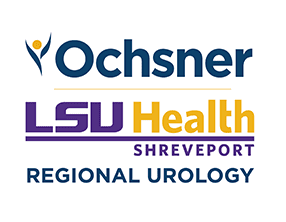Clinical Research
Consistently Moving Forward.
The Clinical Research Department of Regional Urology sets us apart from many urology practices. We participate in numerous clinical research projects with the major pharmaceutical companies both across the country and internationally. This research helps bring new medication to the market for use in the future. We also have been able to offer new forms of therapy to our patients that are not available.
When our patients participate in the clinical trials at Regional Urology, it gives them the opportunity to have medications and procedures that are unavailable to the general public. Patients receive test and study medications at no cost. Participation is always voluntary.
Current Studies
HIDDEN
The study is of an oral investigational drug
called VERU-944 as a possible treatment for the relief of vasomotor symptoms, commonly known as hot flashes (sensation of heat), in men undergoing androgen deprivation therapy (ADT) for the treatment of prostate cancer.
Low Grade Bladder Cancer
The purpose of the study is to establish the effectiveness of UGN-102 as a primary chemoablative therapy in the treatment of Low grade intermediate risk non-muscle invasive bladder cancer.
Female Stress Urinary Incontinence (1)
The purpose of the study is to evaluate the safety and effectiveness of the SUI-100 device for the treatment of female stress urinary incontinence (SUI)
Female Stress Urinary Incontinence (2)
The purpose of the study is to evaluate the safety and effectiveness of an investigational device called the Vesair Bladder Control System in managing your stress urinary incontinence (SUI)
Female Urinary Urge Incontinence
The purpose of the study is to evaluate the safety and effectiveness of the Hologic trigone RF ablation device for the treatment of Urinary Urge Incontinence
Benign Prostatic Hypertrophy (BPH)
The purpose of the study is to evaluate the safety and effectiveness of the Optilume BPH Catheter System in the treatment of Lower Urinary Tract Symptoms (LUTS)/Benign Prostatic Hypertrophy (BPH)
Secondary Hyperoxaluria with Kidney Stones
The purpose of this study is to learn more about the effect of an investigational drug called ALLN-177. It is designed to break down oxalate when taken with food. Oxlate is an organic chemical that occurs naturally in many foods. Leafy plants such as spinach and rhubarb contain large amounts of oxalate. Oxalate is removed from the body by the kidneys and passed into the urine. Some people have too much oxalate in the urine, and this can cause kidney stones and other health problems.
If ALLN-177 is successful in breaking down oxalate in foods in the gut and decreasing the amount of oxalate absorbed, it may help treat these medical conditions. The study will enroll male and female patients 18 years or older who have a history of hyperoxaluria. The study will be conducted at approximately 12 to 18 research centers in the United States.
Male Overactive Bladder
The purpose of the study is to find out if vibegron is effective, safe, and tolerated in men with OAB symptoms while taking medication for BPH
Early Prostate Cancer
The purpose of the study is to see if apalutamide along with androgen deprivation therapy can prevent the recurrence of prostate cancer after radical prostatectomy.

